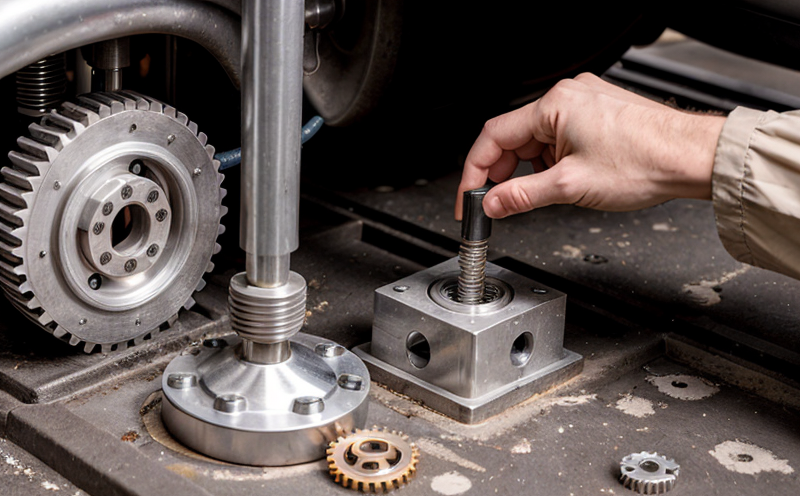ASTM F2971 Mechanical Property Testing of AM Plastics
The ASTM F2971 standard provides a comprehensive approach to mechanical property testing specifically tailored for additive manufactured (AM) plastics. This test method is pivotal in ensuring the reliability and quality of parts produced through 3D printing technologies, which are increasingly used across various sectors such as aerospace, automotive, medical devices, and consumer products.
The ASTM F2971 standard covers several mechanical properties including tensile strength, flexural modulus, impact resistance, and more. These tests are critical for assessing the structural integrity of parts that may undergo significant stress during operation or handling. By adhering to this standard, manufacturers can ensure their AM plastics meet stringent quality benchmarks.
The process involves carefully preparing specimens according to ASTM F2971 specifications. Specimens must be fabricated using the same parameters as those used in production to ensure accurate representation of real-world conditions. Once prepared, testing is conducted on specialized equipment designed for precise measurement and analysis. Results are then compared against accepted values outlined in the standard.
The importance of ASTM F2971 cannot be overstated, especially given the growing demand for lightweight yet robust components across industries where every gram counts towards overall system efficiency. Compliance with this standard not only enhances product performance but also fosters trust among customers and regulatory bodies alike.
For instance, aerospace companies rely heavily on these tests to guarantee that parts used in critical systems function reliably under extreme conditions. Similarly, medical device manufacturers use ASTM F2971 results during development stages to validate safety margins before clinical trials begin.
In summary, ASTM F2971 plays a vital role in validating the mechanical properties of AM plastics, thereby ensuring product quality and reliability across numerous applications.
Why It Matters
The significance of ASTM F2971 lies in its ability to bridge the gap between theoretical design and practical implementation. In additive manufacturing, where customization and flexibility reign supreme, it is essential to validate that parts retain their expected mechanical characteristics throughout the entire production cycle.
- Ensures consistency across batches produced using AM technologies
- Provides data for continuous improvement in manufacturing processes
- Safeguards against potential failures due to material inconsistencies or processing errors
- Facilitates regulatory compliance and market access for new materials and products
By incorporating ASTM F2971 into their quality control protocols, manufacturers can build confidence in their offerings while reducing risks associated with unexpected performance issues.
Why Choose This Test
Selecting ASTM F2971 for mechanical property testing offers numerous advantages that cater to the specific needs of additive manufacturing. Firstly, it addresses the unique challenges posed by AM processes, such as layer-by-layer construction and varying material properties within individual parts.
- Accurate representation of real-world conditions through controlled specimen preparation
- Standardized procedures ensure comparability between different manufacturers and laboratories
- Precise measurement tools aligned with industry best practices guarantee reliable results
- Comprehensive coverage of essential mechanical properties necessary for various applications
This standard also supports innovation by allowing researchers to explore new materials and techniques while maintaining consistent quality standards. Furthermore, compliance with ASTM F2971 can serve as a competitive differentiator in the marketplace, demonstrating commitment to excellence and reliability.
Environmental and Sustainability Contributions
Incorporating ASTM F2971 into environmental sustainability initiatives involves several key aspects. By validating the mechanical properties of AM plastics, this test helps optimize material usage, reducing waste and promoting recycling practices.
- Precise testing ensures that only necessary amounts of raw materials are used, minimizing resource consumption
- Consistent quality improves product longevity, leading to reduced lifecycle costs and environmental impact over time
- Data from ASTM F2971 informs design changes aimed at enhancing recyclability without compromising performance
- Sustainable manufacturing practices supported by this standard contribute positively to global sustainability goals
Through these contributions, ASTM F2971 plays a crucial role in advancing sustainable manufacturing processes within the additive industry.





